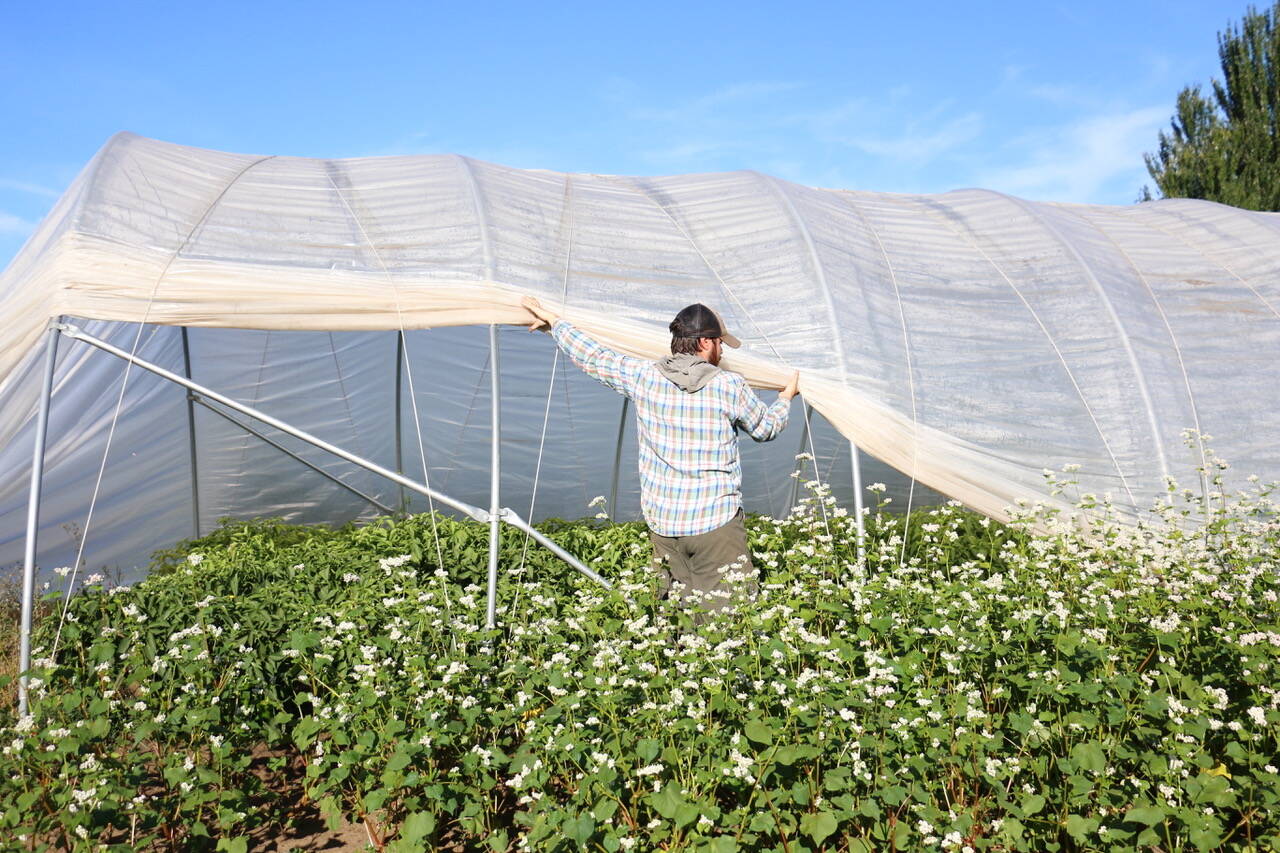Whidbey residents with an interest in propagation and cultivation of crops, raising livestock or operating and repairing equipment might want to consider applying for a spot in the Organic Farm School’s core program.
The intensive, full-time program runs from March to mid-November. Though it draws many participants from across the country, locals are oddly not as likely to apply to the Clinton-based program.
“Which is interesting, because when the program started back in 2009 it was all people from Whidbey,” said Executive Director Judy Feldman.
She’s hoping to change that this year.
“We do have people on island that are always looking for skilled farm help,” she said, adding that the school is often approached by Whidbey farmers looking for labor, and the school doesn’t have enough graduates to fill the positions.
The small cohort of students in the program learn all aspects of farming, including finances and how to build a business plan. They take part in raising and harvesting poultry. The program prioritizes the growth of annual vegetable crops.
Students spend eight to nine hours, five to six days a week furthering their education, which includes plenty of manual labor. During the eight and a half months, it’s not possible for them to work any other job while enrolled in the program.
Tuition costs $5,000, but there are some scholarship opportunities available.
“We don’t want anybody to feel like they can’t go through the training because of the money,” Feldman said. “If they’re serious, we want to talk to them.”
Interested farmhands should apply by Valentine’s Day in order to be considered for the program, which begins March 4. The application, which emphasizes that farming is not predictable, easy nor glamorous, consists of a few agricultural-related questions. There is also an interview process following the application.
“We really want people who live on Whidbey to know this is an opportunity for them,” Feldman said. “We encourage them to apply if this is something they’ve been looking for a way to do.”
She added that farming is a critical element of food systems across the country, and she is not seeing enough people going into the profession.
“A couple of the strongest reasons to consider the Organic Farm School are those opportunities beyond graduation, either to look for work on the island or in the region, and the fact that while you’re at the farm school you’re getting some robust community connections,” Feldman said.
Notable Whidbey alumni of the Organic Farm School include Stephen Williams of Foxtail Farm, Annie Jesperson and Nathaniel Talbot of Deep Harvest Farm and John Burks of Kettle’s Edge Farm.
Williams left behind a sales career in North Carolina to attend the program in 2012, which he credits for giving him a solid foundation to start his own farm in 2016.
“It’s made my business,” he said. “It’s one of those things where I wanted to make a change and I wanted to do it quickly, and the farm school gave me that opportunity.”
He recommends that participants put their whole heart and soul into the program, which is a full-time commitment.
“It’s like getting a four-year degree without having to go to school for four years,” he said. “It’s pretty cool.”



